In addition to a balanced diet rich in fiber, vitamins, legumes and unprocessed foods, good hydration and regular physical activity, certain plants can promote weight loss.
Phytotherapy is defined as therapy using plants. They have been used since ancient times and throughout the world. They are consumed directly, such as in herbal teas, or extracted, such as in essential oils.
Fat-burning plants increase the body’s energy expenditure by drawing on its reserves (fats); appetite-suppressing plants reduce energy intake; diuretic and draining plants facilitate the elimination of water and fats.
I share with you the 9 plants we use in phytotherapy to support weight loss, and my advice on how to use and consume them properly.
📚 Also read | The most effective weight-loss programs on the market according to a dietitian
1. Green tea leaves
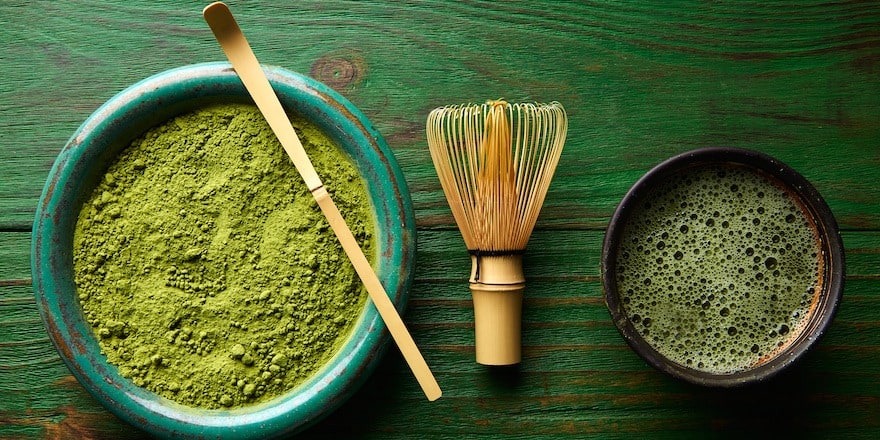
Rich in caffeine (2 to 4%) and polyphenols (> 20% of dry weight), the leaves of green tea (Camellia sinensis) consumed in powdered form increase energy expenditure more than caffeine alone, as can be read in this study.
However, be sure to follow the recommended doses, that is 500 mg of green tea powder per day for 1 month. High doses of caffeine can lead to harmful effects such as tachycardia and hypertension.
I recommend taking it in the morning, during or after breakfast to promote absorption of green tea. I do not recommend taking it on an empty stomach! If you are supplementing with iron, I recommend avoiding green tea because it inhibits iron absorption.
2. Guarana
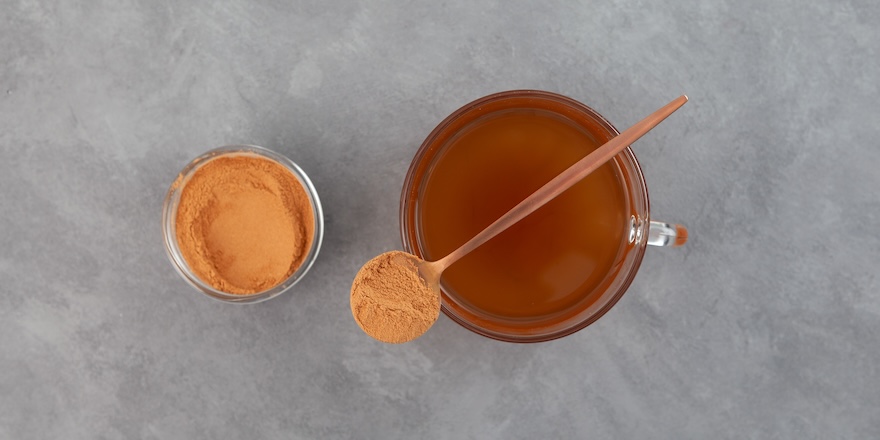
The fruit of guarana (Paullinia cupana) contains 3.6 to 5.8% caffeine. It is the plant with the highest caffeine concentration. As with green tea, its powder is used for its fat-burning and antioxidant properties.
Guarana is, moreover, recommended for overweight individuals, as shown by this clinical trial.
I recommend 450 mg up to 3 times a day, preferably before 4 PM to avoid sleep disturbances. My advice: be careful to follow the doses and not to consume additional coffee.
📚 Also read | What you need to know before buying guarana
3. Konjac powder
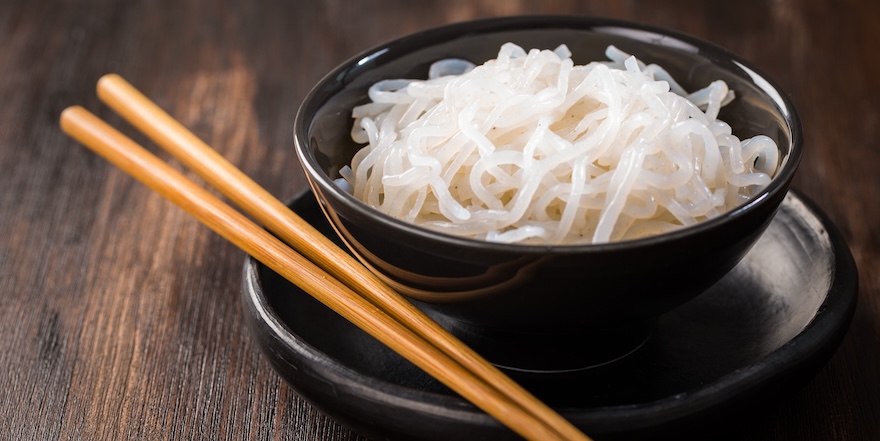
Konjac (Amorphophallus konjac) is a plant native to Asia. Its tuber, very rich in fiber, is used in food, cosmetics and in herbal medicine.
Indeed, the polysaccharides of konjac are the only dietary fibers to have a health claim recognized by EFSA (the European Food Safety Authority) for weight loss: “[…] contributes to weight loss when consumed as part of a calorie-restricted diet“.
You will often find it in noodle form but I recommend 1 g of konjac powder, three times a day with 1 to 2 glasses of water, before meals. To optimize konjac’s effect, be sure to drink at least 1.5 L of water per day.
4. Nopal powder
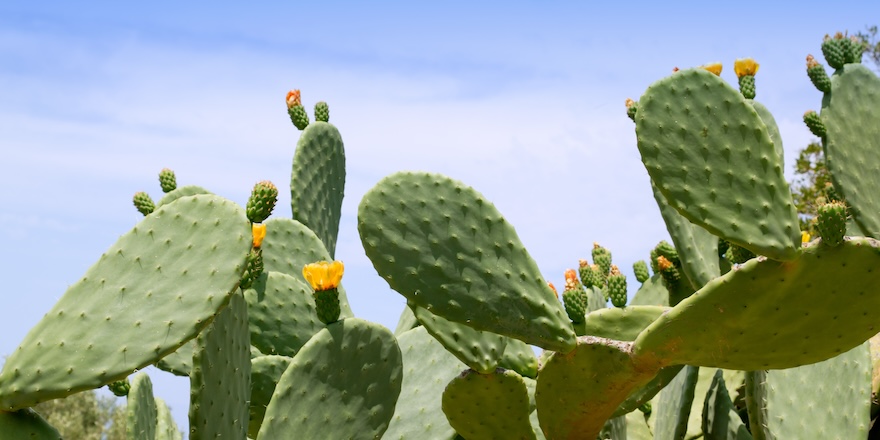
Nopal powder (Opuntia ficus‐indica), also known as prickly pear cactus, has the ability to bind fats and facilitate their excretion.
This study also shows that consumption of nopal powder leads to significant reductions in body fat percentage, blood pressure, and total cholesterol.
The powder is taken with meals. The recommended amount is between 800 mg and 1 g per day.
5. Fucus extract
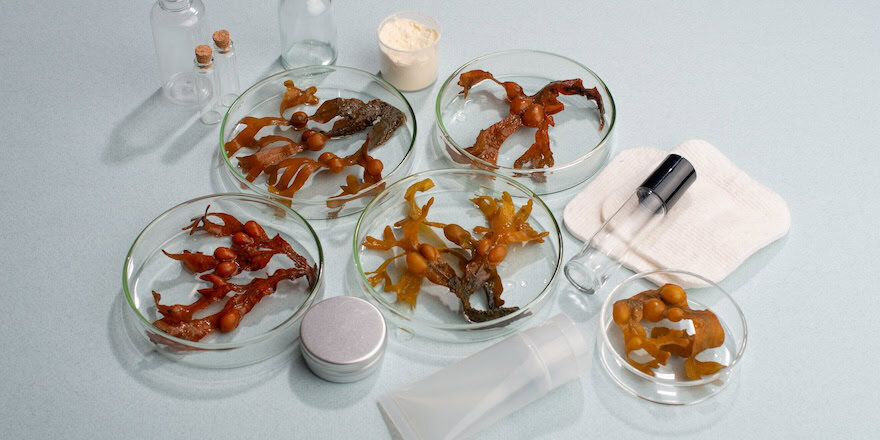
The fucus (Fucus vesiculosus) is a seaweed found on Atlantic shores and in cold seas. Like most seaweeds, fucus is rich in iodine, a trace element that stimulates the thyroid gland. By stimulating this gland, iodine affects metabolism: it has a fat-burning effect.
In addition to iodine, fucus is rich in polysaccharide fibers. They swell in the stomach when absorbed with sufficient water. They reduce the feeling of satiety and act as appetite suppressants.
Other fibers present, alginates, inhibit lipid absorption and limit fat accumulation, as shown by this study.
However, I draw your attention to the numerous contraindications of fucus given its iodine content. It is contraindicated in cases of thyroid disorders, heart conditions, kidney diseases, in children, pregnant women and breastfeeding women. And I recommend not using it for more than 3 weeks.
6. Fenugreek
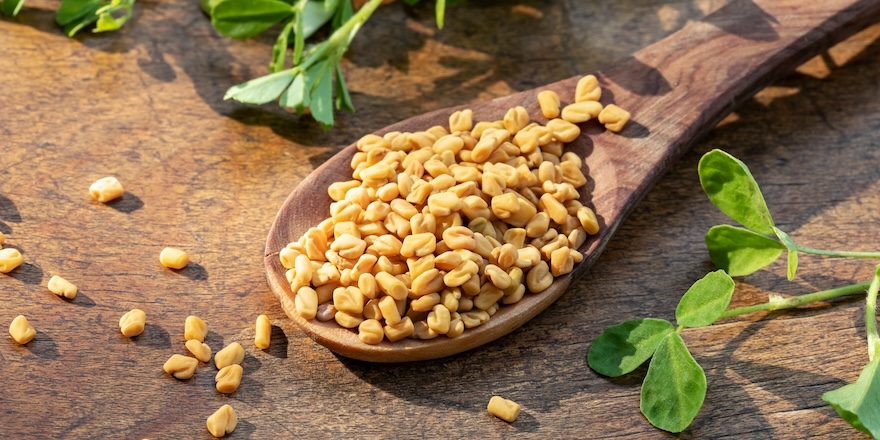
The seeds of fenugreek (Trigonella foenum graecum) are traditionally used to regulate blood sugar and reduce sugar cravings, as indicated by this article from Vidal, the pharmacists’ dictionary.
When ground into powder, fenugreek also helps regulate appetite and prevent cravings.
I recommend between 1 g and 5 g of powder per day, taken with meals and as needed.
📚 Read also | How to choose the best fenugreek seeds
7. Kudzu powder
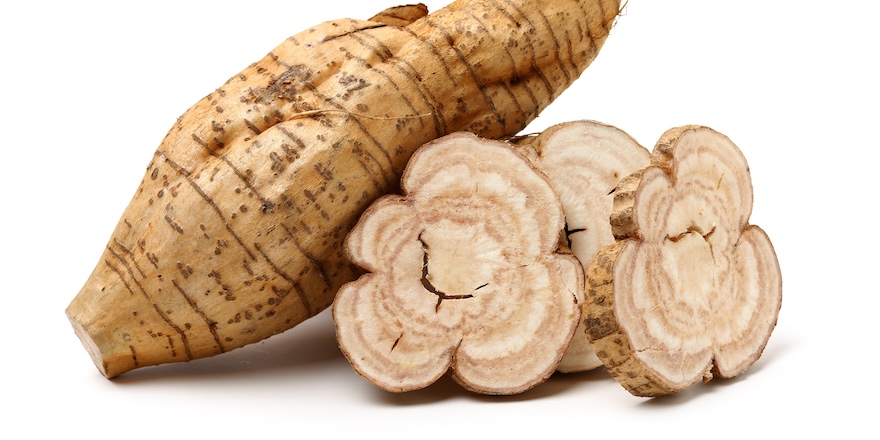
The root of kudzu (Pueraria lobata) is used in Chinese medicine for its adaptogenic properties. Its active compounds help reduce the body’s physical and psychological response to stress.
This plant is very useful for addressing addictive disorders (alcohol, tobacco, sugar…) as shown in this study.
Indeed, kudzu acts on the reward system by inhibiting feelings of craving, which can be useful for reducing sugar cravings.
I recommend a course of at least 3 months, taking 1 to 3 g of kudzu root powder per day.
8. Cherry stems
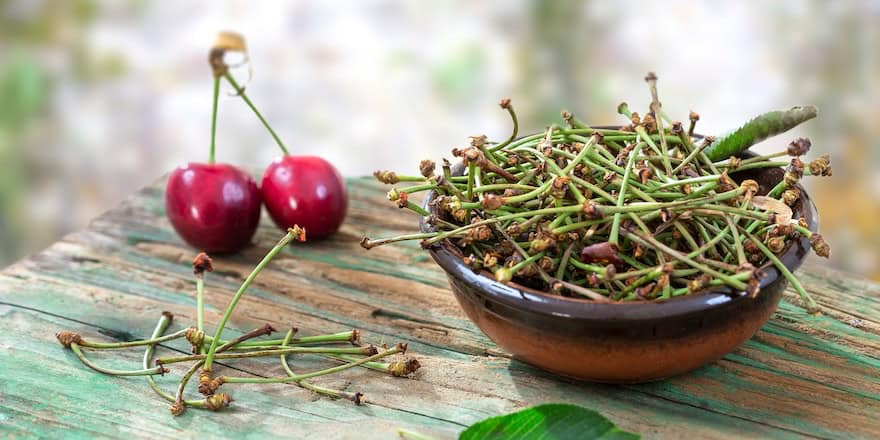
Cherry stems used in herbal medicine come from the sour cherry (Prunus cerasus), native to Europe and Southwest Asia. We traditionally use them for their diuretic properties, as shown in this study. They are therefore among the plants that help eliminate water.
They are consumed dried as an infusion, starting at 3 cups per day for 2 weeks.
Additionally, if you suffer from urinary infections, particularly cystitis, they can prove useful because they are urinary antiseptics.
📚 Read also | 6 herbal teas for weight loss recommended by a pharmacist-herbalist
9. Birch sap

Birch sap (Betula pubescens) has diuretic and liver- and kidney-draining properties. These properties are recognized, as shown by this extract from Vidal, the authoritative pharmaceutical reference.
It helps detoxify the liver and kidneys, eliminate the body’s waste, reduce excess cholesterol, and fight water retention and cellulite.
Moreover, it is rich in antioxidants and vitamins, which is ideal for revitalizing the body and promoting joint flexibility.
It is harvested in March, when it rises from the roots toward the buds, before the young leaves appear.
The 3 L course lasts 20 days, i.e. 15 cL every morning upon waking. My clients love it!
My advice before using herbal medicine for weight loss
To ensure an optimal result, you must follow the dosages, the duration of the courses, and adapt your lifestyle (diet, hydration, exercise, sleep, etc.). Pay close attention to the recommendations: some plants are contraindicated depending on age, medical conditions, or medications.
These plants can be consumed in different ways: herbal tea, plant powder, hydroalcoholic extract. Warning, not all plants should be consumed as herbal teas!
Above all, I recommend that you find the format you can be most consistent with. Plants should be taken several times a day for at least 2 to 3 weeks.
If you prefer powdered plants, opt for capsules. Indeed, loose powder oxidizes more easily and its dosing is less precise.
Ensure the quality of the plants by favoring organic, local agriculture. The outcome will depend on the initial quality of the plant. Consult qualified herbalists to advise you and sell you the right plants.
Sources and scientific studies
Andersen T, Fogh J. Weight loss and delayed gastric emptying following a South American herbal preparation in overweight patients. J Hum Nutr Diet. 2001.
Catarino, M.D.; Silva, A.M.S.; Cardoso, S.M. Phycochemical Constituents and Biological Activities of Fucus spp. Mar. Drugs 2018, 16, 249.
Dulloo AG, Duret C, Rohrer D, Girardier L, Mensi N, Fathi M, Chantre P, Vandermander J. Efficacy of a green tea extract rich in catechin polyphenols and caffeine in increasing 24-h energy expenditure and fat oxidation in humans.
Phytotherapy: Fenugreek, VIDAL
European Food Safety Authority. Scientific Opinion on the substantiation of health claims related to konjac mannan (glucomannan) and reduction of body weight (ID 854, 1556, 3725), reduction of post-prandial glycaemic responses (ID 1559), maintenance of normal blood glucose concentration. EFSA J. 2010.
Hooman N, Mojab F, Nickavar B, Pouryousefi-Kermani P. Diuretic effect of powdered Cerasus avium (cherry) tails on healthy volunteers. Pak J Pharm Sci. 2009.
Lukas SE, Penetar D, Berko J, Vicens L, Palmer C, Mallya G, Macklin EA, Lee DY. An extract of the Chinese herbal root kudzu reduces alcohol drinking by heavy drinkers in a naturalistic setting. Alcohol Clin Exp Res. 2005 May.
Onakpoya IJ, O’Sullivan J, Heneghan CJ. The effect of cactus pear (Opuntia ficus-indica) on body weight and cardiovascular risk factors: a systematic review and meta-analysis of randomized clinical trials. Nutrition. 2015 May.
Phytotherapy: Birch, VIDAL



